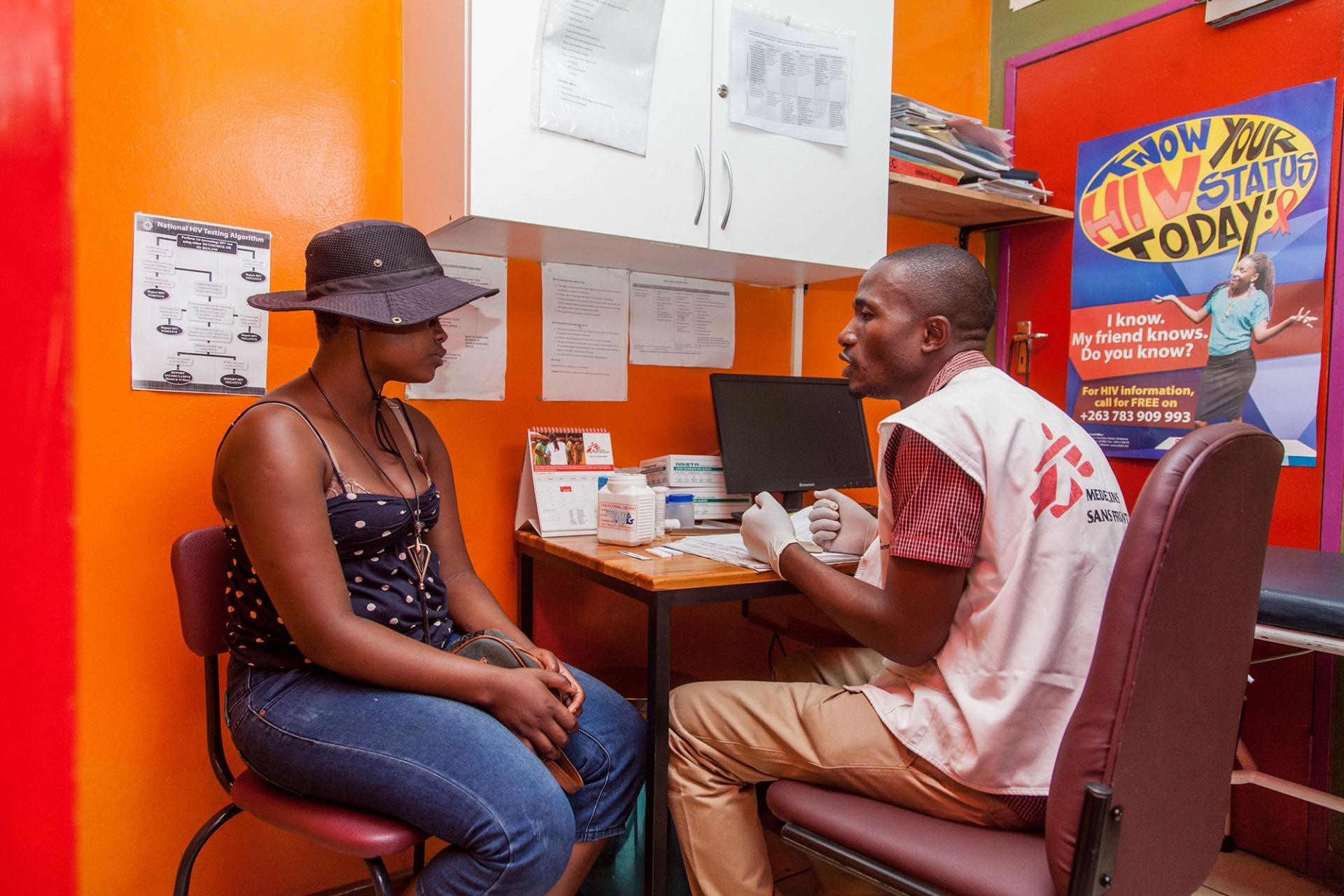In Zimbabwe, a host of barriers are preventing adolescents, defined as aged 10 to 19 years, from accessing sexual and reproductive health (SRH) services safely and confidentially without the consent of their parents.
Without free and informative access to health services that include contraceptives, treatment for sexually transmitted infections and condoms, national studies show that rates of adolescent pregnancy and HIV are increasing, while knowledge levels around sexual health are declining.
Recognizing the huge vulnerability of adolescents without access to free sexual and reproductive health services, MSF partnered with the Harare City health department to start an ‘adolescent-friendly corner’ at Edith Opperman clinic in Mbare.
- Adolescent corner: Youth-friendly clinic
- I educate people using my own experience
- Many adolescents suffer in silence
- Adolescents on antiretroviral treatment face so many challenges
Adolescent corner: Youth-friendly clinic
"We have painted the clinic to make it look different, and the nurses don’t wear uniforms."
MSF nurse Fanuel Sifeku describes his work in the ‘adolescent corner’ at the Edith Opperman clinic in Mbare, Harare.
“MSF introduced the adolescent corner after it was discovered that adolescents had a high mortality rate due to HIV and they had issues that made them vulnerable.
Generally, adolescents are afraid of going to a clinic to seek treatment, so we have painted the adolescent corner to make it look different from normal clinics, and the nurses don’t wear uniforms.
We have two peer volunteers who are adolescents, to make the clinic as adolescent-friendly as possible. We want adolescents to feel free when they come to the clinic. We want them to meet their peers so that they can discuss any issues freely, and so that they will come back next time.
We have set up indoor games like chess for them to play. We have also put up a gazebo outside where we conduct health club meetings.
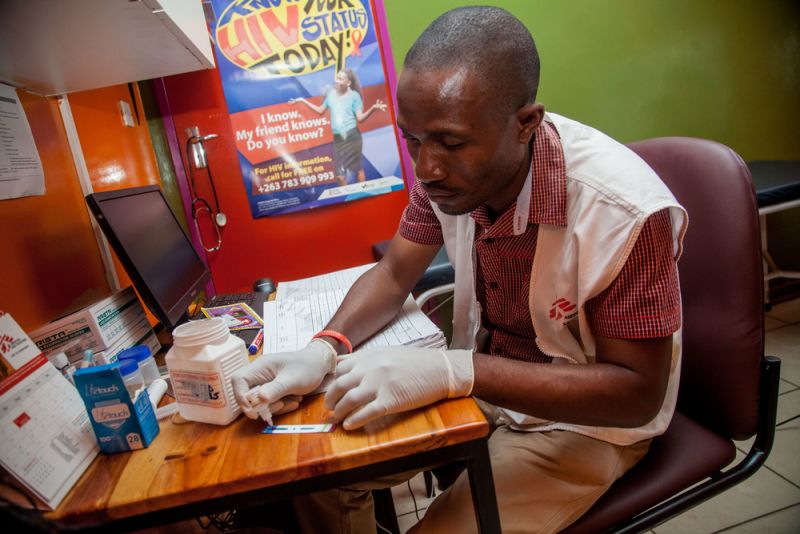
Adolescents come to the clinic with different illnesses. We try to offer a comprehensive package that includes testing for HIV, screening for sexually transmitted infections (STIs) and offering family planning to adolescents who are sexually active.
On a day-to-day basis, we see two types of adolescents. We see adolescents who are sex workers, and we see adolescents who simply come to seek services.
The sex workers are open. They will come and tell you straight away that they have an STI and want treatment. Others will go in circles.
They will tell you, ‘I have a headache or abdominal pain,’ and then you have to probe until they tell you their story. Sometimes you ask them questions and then introduce topics so that they open up.
Many of the adolescents we see are school drop-outs who lack knowledge about their health and who are marginalised. Some do not have the power to negotiate for safe sex because the people they have sex with do not want to have protected sex. So they have unprotected sex so that they can get more money.
With STIs, we discuss how one can acquire STIs, signs and symptoms, treatment and how to use condoms. We also conduct HIV testing and counselling campaigns.
Other activities done at the clinic include weekly health club meetings. We invite adolescents who come for testing to come to the meetings.
We discuss issues like family planning, STIs, HIV transmission and prevention. Adolescents from school health clubs come to the clinic for health education talks.
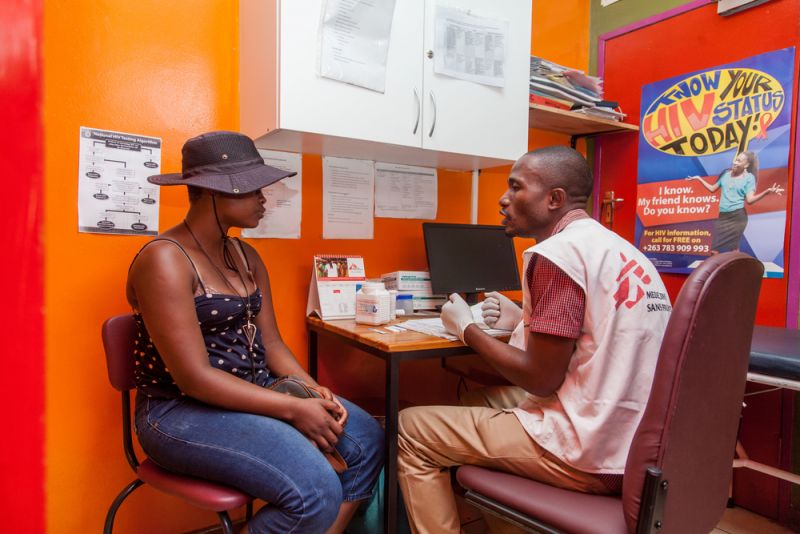
Most adolescents face challenges due to non-disclosure of HIV status by parents. Some adolescents discover when they are sick or when they are already in a relationship that they are HIV-positive.
Most find it difficult to accept their status under such circumstances. When this happens we provide counselling, although it will take time for them to accept.
The other challenge is that the age of consent for sex is 16 years, yet in this community, some adolescents become sexually active at an early age when they are 12 or 13.
According to clinical guidelines, these adolescents cannot be tested for HIV on their own without the consent of their guardians. If they are sick, that’s when we can apply the ‘best interest of the patient’ concept.
When we see under-16s, we ask them to come with their guardians, but in most instances, they do not come back. Parents are reluctant to bring their children for HIV testing. Sometimes we ask our peer volunteers to take consent forms to the parents.
We have succeeded in linking those that test HIV-positive to care. We have also succeeded in giving information. Since we started the adolescent corner, family planning uptake is increasing.
There are misconceptions in the community that if you use family planning at an early age, your fertility will be affected. Those misconceptions need to be corrected through health education.
We also aim to ensure that children who test HIV-negative keep their negative status. We send them messages to remind them to come for retesting and to prevent getting HIV and STIs.
Our adolescent corner has helped improve adolescent health-seeking behaviour. When we started the project, we saw 30 adolescents per month but now we are seeing about 200.
“I educate people using my own experience”
"I wondered how I would tell my boyfriend that I was HIV-positive and was on ARV treatment."
Nineteen-year-old Rutendo was just eight years old when she started antiretroviral (ARV) treatment for HIV.
She did not understand why she needed the medication, which gave her headaches and a rash.
Rutendo had been infected with the HIV by her mother at birth. Two years later, her mother died, and she was brought up by her grandparents in Mbare.
In her teens, Rutendo started to have relationships with boys, and this brought up a lot of difficult questions to which she did not have the answers.
“I wondered how I would tell my boyfriend that I was HIV-positive and was on ARV treatment,” says Rutendo. “I didn’t know how I would explain how I got infected. These thoughts troubled me a lot.”
The situation was brought to a head by a family member’s unguarded words. “A new daughter-in-law in the family got to know that I was on ARVs, and she told people in the neighbourhood about her discovery,” says Rutendo.
“I was uncomfortable and hurt because people started talking about it and some asked me if this was true.”
Rutendo felt exposed and ashamed and decided to stop taking her treatment. “I felt very humiliated and I stopped taking my medication,” she says.
“My behaviour turned wild. I started drinking beer and taking drugs. I had friends who encouraged me to do all those bad things.”
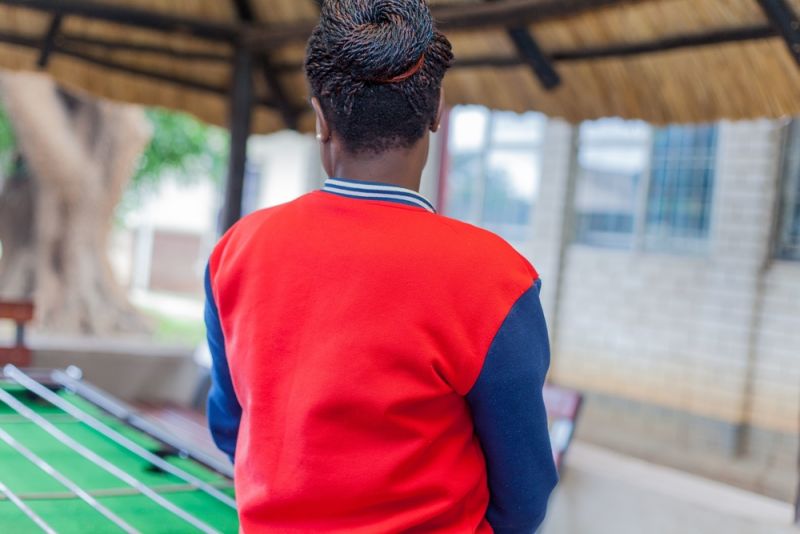
Without treatment, Rutendo became unwell. “Because I was no longer taking my medication, I fell sick. “My grandmother brought me to the Edith Opperman clinic in Mbare where I met a counsellor from MSF who encouraged me to adhere to my treatment. The counsellor also discouraged me from taking drugs and I stopped.”
For two months, Rutendo attended adherence counselling sessions. Because of her successful adherence to her treatment, her viral load – which had been very high – dropped until it was undetectable.
After some time, Rutendo was approached by an MSF health promoter, who had a proposal for her.
“The health promoter told me that I was a survivor, and encouraged me to be a ‘peer educator’ so that I could encourage other adolescents to adhere to treatment,” says Rutendo.
“I started spending a lot of time at the clinic, talking to other adolescents. I shared my experiences with them and I told them how I felt and how painful it is because I had walked the journey and gone through it all.”
“I feel happy that I am now a peer educator and I educate people using my own experience,” she says.
She also encourages other teenagers to protect themselves from unplanned pregnancies, as well as from HIV and other sexually transmitted infections, by having safe sex and using the reproductive health services that MSF provides.
“What I have observed in the community is that adolescents are engaging in unprotected sex,” says Rutendo. “When they fall pregnant, some consider committing suicide.
So I also encourage adolescents to access sexual and reproductive health services to prevent sexually transmitted infections and pregnancy.”
Her work as a peer counsellor also involves talking to and educating the parents of teenagers. “Parents should have information so that they can assist their children with information,” says Rutendo. “We encourage parents to allow their children to access sexual and reproductive health services at the clinic.”
Some parents are initially opposed to this idea, but Rutendo is persuasive. “Sometimes they complain that we are encouraging their children to indulge in sex,” she says, “but we always try to explain to them that we know that adolescents are having sex, and we want them to be informed so that they can make informed decisions.”
Rutendo’s work with MSF has taught her a lot, she says. As well as helping other adolescents, she has also found solutions to some of her own questions and anxieties about the future.
“Many adolescents suffer in silence”
"There is a lot of stigma in the community that can hinder adolescents from accessing sexual and reproductive health services."
Tapiwa, aged 25 is a peer educator in the ‘adolescent corner’ run by MSF at the Edith Opperman clinic in Mbare, Harare.
She talks to the teenagers who come to the clinic about the changes happening in their bodies and how to avoid the pitfalls and problems that adolescents typically face.
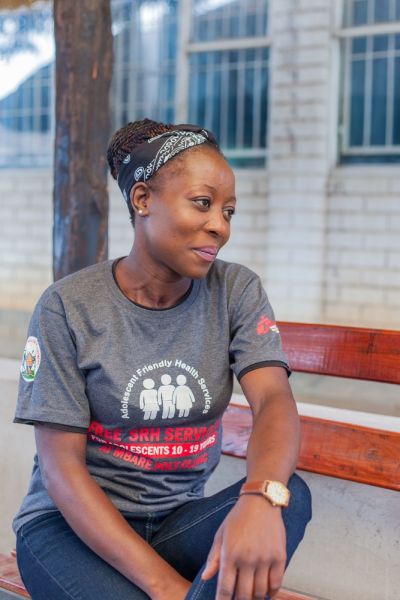
“I educate my peers in MSF’s adolescent corner, a clinic where adolescents can seek various services offered for free.
The clinic provides treatment for any general diseases and it also provides HIV testing and counselling services.
Some of the adolescents have started to be sexually active but they are not using any protection to prevent themselves from infections and unwanted pregnancies, thereby putting themselves at risk.
Some were infected with HIV by their mothers at birth but have never had the chance, until now, to get tested.
There is a lot of stigma in the community that can hinder adolescents from accessing sexual and reproductive health services.
Some health workers actually scold adolescents who visit clinics, accusing them of being wayward, so some adolescents end up not seeking services for fear of stigma.
As a young person, if I approach my peer, it is easier for him or her to listen to and accept what I explain because we the same age and have a common understanding compared to an elderly person.
They will take it that I am not trying to humiliate or stigmatise them but am trying to genuinely assist so that they can access services.
It’s difficult for parents to tell their children about accessing family planning services, but it is easy for me as a peer educator to give that advice, especially if he or she is already sexually active.
Many adolescents suffer in silence because they cannot open up to discuss issues about their sexual and reproductive health rights, while some simply do not have the information. We sometimes meet adolescents who are pregnant but who don’t even know how they got pregnant.
I have realised that most adolescents do not get information from their parents, but they can get information from peers, and they will open up to peers to discuss issues that affect them.
I feel that I have a lot of information which is worth sharing, and this motivated me to become a peer educator.
In general, adolescents do not go to a clinic unless they are seriously ill. That is why we sometimes go into the community to talk to adolescents and sometimes we approach parents to explain the services we offer.
While some parents are dismissive, others are forthcoming. Some actually make an appointment and ask us to come and take their adolescents to the clinic after school.
Sometimes, too, we go to places like Mukuvisi where we find adolescent sex workers and we distribute condoms. From there, someone might come and disclose that they always feel itchy and they want to find out if we treat STIs.
We are socialised into believing that issues of sexual and reproductive health rights are for adults and we tend to ignore the fact that adolescents also engage in sexual activities.
Because of this notion, adolescents are reluctant to access services because they think the services are for adults.
I would like to encourage adolescents to improve their health seeking behaviour. They should come to seek services because they are being offered for free.”
Adolescents on antiretroviral treatment face so many challenges
"Sometimes teens forget that they are supposed to go back home to take their medicines."
It is 12 midnight as 16-year-old Tino walks into the one-bedroomed house in Mbare, Harare, which he shares with his parents and four siblings.
Tino is HIV-positive and on antiretroviral (ARV) treatment, but often he forgets to take his medication. The reason, he says, is that he spends so little time at home.
Because of the limited space in their house, his family sleep in shifts at night, and Tino is out of the house as much as he can.
When he goes out to meet his friends, Tino does not take his medicine with him because of the stigma associated with the disease. By the time he gets back home, it is usually late, and Tino is either too exhausted or too drunk to remember to take it.
As a result of missing so many doses, Tino’s first-line HIV drugs stopped being effective. Tino’s viral load – the amount of the virus in his blood – increased significantly and his health deteriorated dramatically.
Doctors switched Tino to second-line treatment and, within two weeks, he started to show signs of recovery. The shock of falling sick has made him realise the importance of sticking to his treatment in the future.
Tino is one of many adolescents on ARV treatment in Mbare, most of whom find it hard to take their medication regularly due to various competing pressures, including fear of stigma and difficult living conditions.
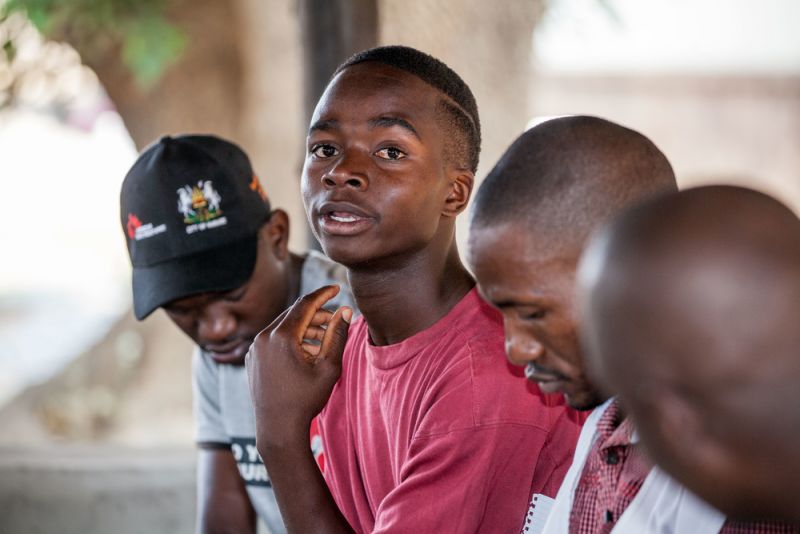
“Being an adolescent on ARV treatment is not easy,” says Cosmas Kagogoda, an MSF counsellor at the Edith Opperman clinic in Mbare, where an MSF team provides treatment and support to people living with HIV alongside the City of Harare Health Department.
“HIV-positive adolescents face many challenges,” says Cosmas. “These include stigma and discrimination, both from themselves and from their peers, and a failure to appreciate the nature of the condition they have.”
When MSF started its HIV programme at the Edith Opperman clinic in January 2016, it found that as many as 44% of adolescents in Mbare were not taking their treatment consistently.
“Adolescents are a special group of people who need to be followed up regularly and be reminded that they have to take their medication,” says Cosmas.
One major challenge is the use of recreational drugs by many teenagers. “Normally, they should take their ARV medication at 7 or 8 pm, which is often the time when they will be high on drugs, and sometimes they forget that they are supposed to go back home to take their medicines,” says Cosmas.
“We encourage them to take their medicines with them if they know they cannot get home earlier. But often they worry that their friends would know that they are on ARV treatment, and this fear of stigma hinders adolescents from adhering to their treatment.”
The MSF team is working hand in hand with the teenagers’ parents and caregivers to allay their anxieties.
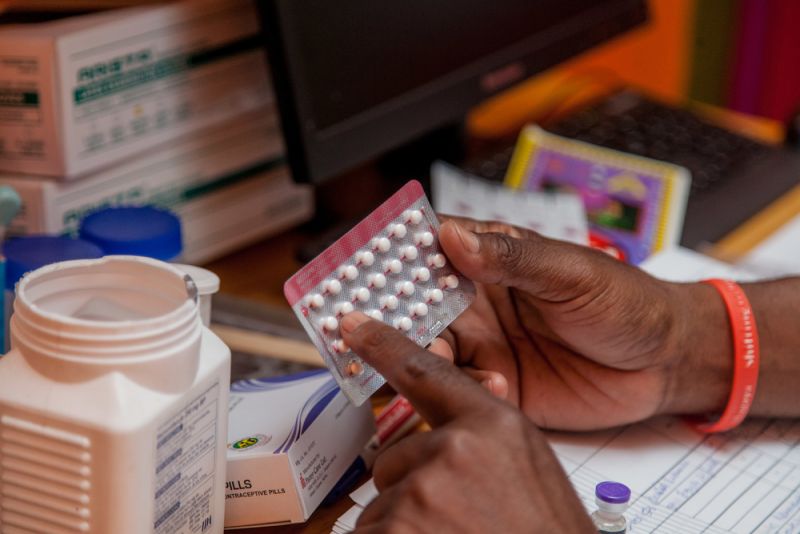
“Most parents are concerned that their children may want to get married, but will find it difficult to disclose their HIV status to their spouses,” says Cosmas. “We give them guidance on advising their children how to disclose their status to their partners.”
MSF’s programme for adolescents has been very successful, says Cosmas. “We have made a huge impact since the introduction of the programme.
Many adolescents are coming to the clinic because of the free services that we are offering, and their viral loads are going down.”
Cosmas tells the story of one adolescent who was in a very poor condition. “When he came to the clinic, the boy could not walk and his body was wasted,” says Cosmas.
“We switched him to second-line treatment and, after two weeks, he started to show signs of recovery – he could walk on his own to the clinic with the aid of a stick. Now he has recovered and, every time we meet him, he is very thankful.”
Find out more about MSF's work in Zimbabwe.
